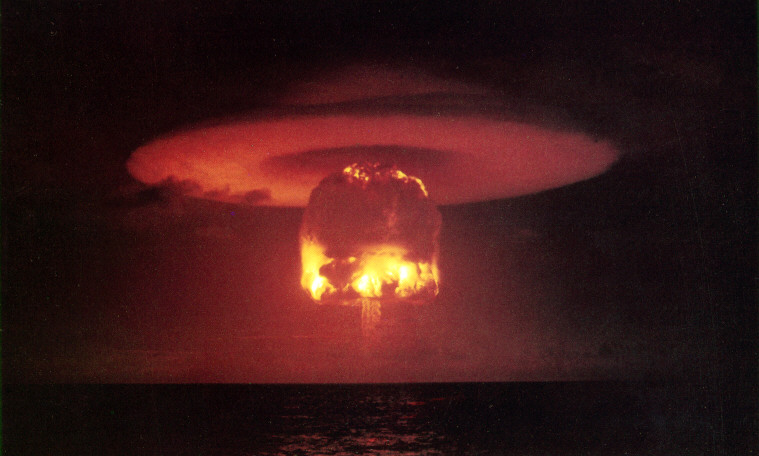There is no secret that the war hysteria was rife during the Cold War . The paranoia had gripped all sectors of public life as well as the government avenues; scrupulous planning and projects had surfaced to avert or safeguard western civilization from a potential Soviet nuclear rampage.
After the Second World War, a combat-honed British Intelligence Service adhered to every possible safeguarding tactic against a nuclear war with Russians. Despite the fact that allied leaders had to unwittingly nod to the Russian support in a case of choosing the lesser evil, the post-war West had a more careful approach towards keeping a healthy relationship with the dictator, Stalin.
Recently British Broadcasting Corporation has authorized complete access to its detailed plans to carry on broadcasting during the outbreak of a nuclear war during the cold war era. The BBC, in collaboration with British Intelligence, had laid out a detailed scheme for a Wartime Broadcasting system in case of a deadly “nuclear exchange” that could have left most of Europe in ruins. The meticulous planning by British Broadcasting during the cold war was codenamed The War Book; a former diplomatic and foreign correspondent for the BBC has been analyzing the plans set out by the corporation in the War Book.
BBC named the plan WTBS Wartime Broadcasting System; the secret underground locations were referred as the deferred facilities. These 11 nuclear-protected bunkers would not only have served as broadcasting bases but also housed government ministers and other significant officials, so the sites were also called Regional seats of Government.
The headquarters for the BBC’s wartime broadcasting would have been at Wood Norton in Worcestershire, sheltering a total of 90 staff including engineers, news editors, announcers, and other sub-editors. The important aspect of the WTBS mentioned in The War Book is the fact that all the broadcasting had to be authorized and supervised by the government officials in consistence with the narrative they wanted to push during the nuclear fallout.
The planners did not overlook the significance of entertainment during the war and authorized adequate storage measures at Wood Norton to store a number of cassettes of some of the very well-known radio programs such as the Goon Show, Just a Minute, and Around the Horne. The War Book also mentioned the fact that in the case of a nuclear exchange BBC had to rely heavily on batteries in order to keep the broadcasting alive.
Selecting the staff to operate the deferred facilities during the war was a very delicate matter. In the early days of the cold war, the tone towards the selection was more authoritarian, suggesting that staff had to be assigned the job without any significant input by the employee. However, in the latter half of the cold war, the staff would be given more choice; they could either volunteer for the job or be invited to take up the task with an option to opt-out without any serious repercussions.
The codename for the activation of wartime broadcasting in The War Book has been blacked out in most places. However, it did slip out on one occasion as “Falsetto”.
A number of BBC’s high ranking staff were quite skeptical of the measures, especially the training exercises that were aimed at mentally preparing the staff for the “inevitable” nuclear exchange with Russia. Roy Walters, a former senior news editor at BBC, spoke about one occasion when he participated in an exercise and called it rather ill-prepared and “done on the hoof”. He talked about the lack of authenticity and inadequate planning towards such daunting task of broadcasting during the Armageddon.
The staff who would take part in WTBS were not promised any significant pay raise, however they were given one incentive to draw a maximum of £250 in advance from their salary. Most of the staff would be male and were advised not to tell their wives about the task. The staff would have been issued a couple of letters leading up to the assignment; the second letter would have meant that they had to report to the nearest bunker as soon as possible. Letters were supposed to be destroyed after reading the information. The staff was not allowed to bring their wives along with them. However they were advised to bring their own reading material or other recreational material. The letters would contain information about the facilities available to the staff, including adequate food supplies aimed at keeping the staff well nourished.
The WTBS project was officially scrapped in 1992 after the Soviet Union officially dissolved and any prospect of an all-out nuclear war with Russia faded away; the war book records were then stored in the BBC written archives in Reading and are now available to researchers.
